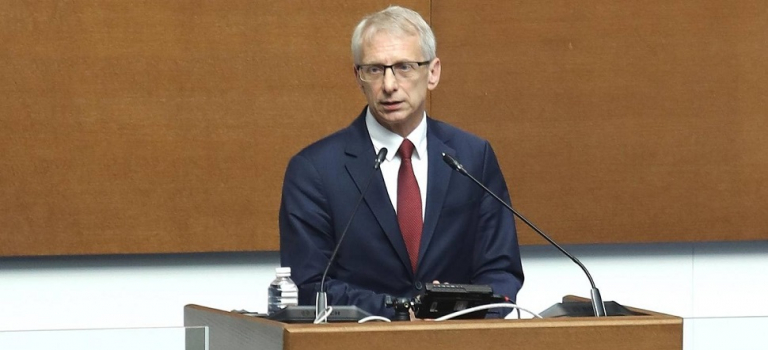
01.09.2023
To draw up the 2024 budget is the top priority for the coming political season as all the policies for next year are dependent on it, Prime Minister Acad. Nikolai Denkov is convinced. “We must approve the budget and the legislation regarding Schengen and the Eurozone in order to set the right course for Bulgaria,” he addressed members of the media in the Parliament.
In his answer to a question from an MP, the Prime Minister emphasized the legislating agenda of the ruling majority as the passage of the legislation is of enormous importance for the final decision on Bulgaria’s accession to the Schengen Area. “For the Netherlands it is crucial how well the Judiciary operates in Bulgaria. The country expects from the European Commission to produce a report that will show how the rules and laws have changed and how they are applied,” Acad. Nikolai Denkov explained.
Meanwhile, in partnership with Frontex and Europol, energetic work continues to decrease illegal migration, as expected by the other country, Austria, that has reservations about Bulgaria’s accession to Schengen. “We must move at the same pace and, if possible, speed it up, in order to divest these two countries of all the reasons that they give to keep Bulgaria out of Schengen,” the Prime Minister pointed out.
As regards another key issue – the earlier termination of the European Commission’s derogation concerning the import and refinery of Russian oil in the petrochemical works in Bourgas, the government expects from Lukoil to present before 8 September this year its schedule with the possible short deadlines for switchover to non-Russian oil. The Prime Minister recalled that from the very first days in office this regular cabinet has been dealing with the matter on which there had been no progress until then. Within a short period of time, reports were produced by the ministries and security agencies and were examined by the Security Council with the Council of Ministers. On this basis, a summary secret report was written and submitted to the National Assembly. Acad. Nikolai Denkov appealed to the MPs to become acquainted with the measures included in the report and the indicative time limits for their implementation.
“I’ve seen Alexei Petrov twice at meetings where he represented an employer’s organization. Never and in no way have I seen him or heard anything from him and about him while the cabinet was put up together in terms of members, program of governance and legislating agenda. I was involved in each of these phases and the name of Alexei Petrov was not mentioned at all there,” the Prime Minister vowed. He emphasized that until now he has not sensed any influence, be it even the smallest, on his part on the performance of the cabinet.
The Prime Minister also made a comment on the movement of the case involving the resignation of Peter Todorov, Secretary General of the Ministry of Interior (MoI). He recalled that two years ago Todorov wanted to resign, as he was aware of the problem. “The question is why the President did not accept it then and even more, why he does not accept it now given an obvious problem in the Ministry of Interior,” Acad. Nikolai Denkov said. Zhivko Kotsev, Deputy Secretary General of the MoI until now, will be nominated to replace Peter Todorov.
In the Prime Minister’s opinion, the President’s prerogatives in periods when a caretaker government holds the reins of power should certainly be redefined. The problem arises when a caretaker government is in office for a longer term, there ceases to be a real separation between the Presidential Institution and the Executive. “We must put in place a new organization to preclude the possibility of abuse of power,” the Prime Minister said.
Regarding accusations that companies connected to the ruling coalition will get funding under the Recovery and Resilience Plan, the Prime Minister emphasized that their projects for the design and development of innovative services and products are evaluated at European level by independent European evaluators who have nothing to do with Bulgaria.